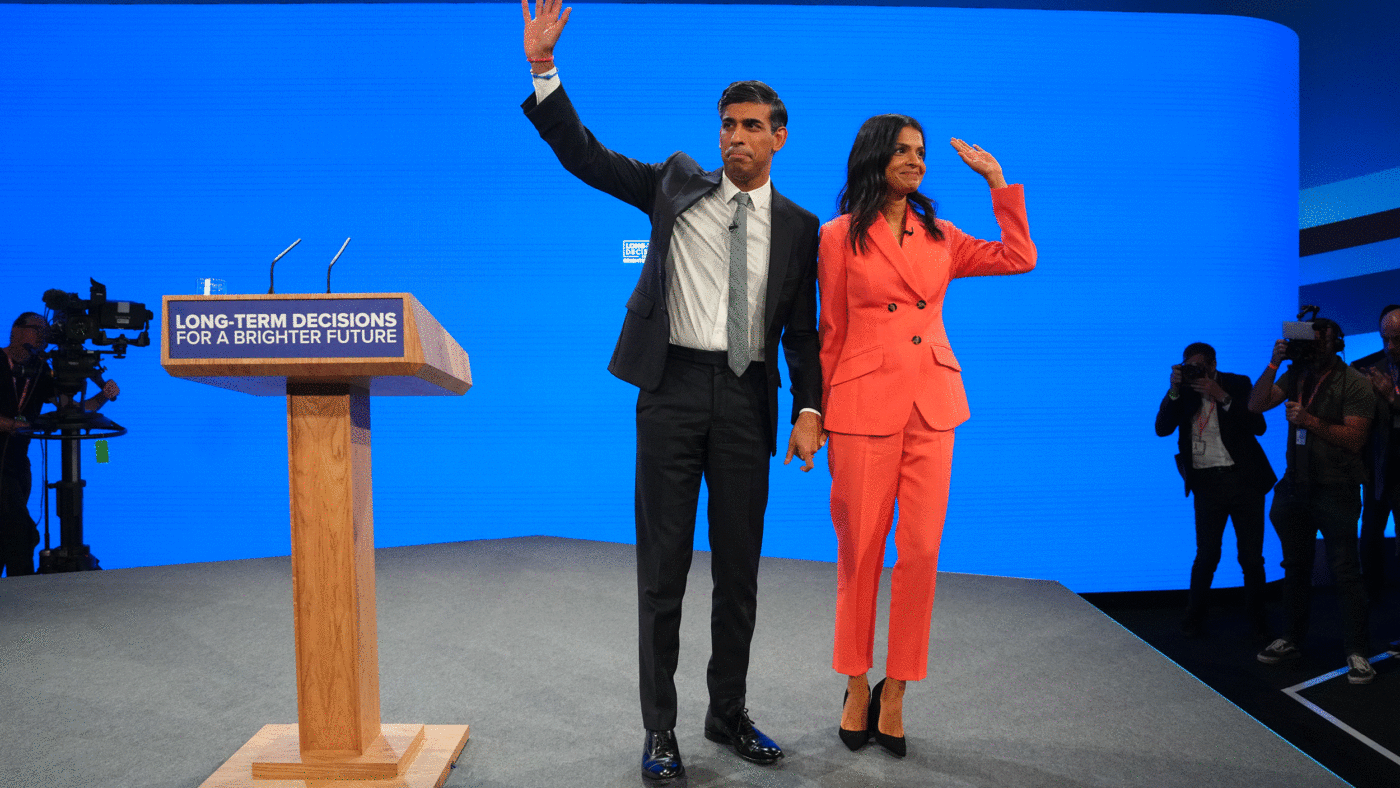I was ill at Conservative Party Conference. Exhausted, croaking, beset by questions about my fitness for office – I felt like a lame joke on the government.
The Prime Minister is clearly mindful of the malaise hanging over his troops, and he took to the stage in Manchester, gleaming and fresh from his Peloton, to declare his intention to end the ‘30-year political consensus’. Leaving aside the fact that the last 30 years includes Brexit and the period in which he was Chancellor, Sunak is correct that this country is in desperate need of Thatcherite reform. But the speech also included worrying signs that he is set to repeat the mistakes of his predecessors.
His biggest break with the past is scrapping the Birmingham-Manchester leg of HS2, which he deftly framed as embodying the delays and decadence of the ancien régime. Nevertheless, canceling a project of this scale, reneging on a manifesto commitment and going against the wishes of key players like Andy Street, is bound to provoke a backlash. And while he may be right that the £36bn could be better spent elsewhere, his announcement of a new ‘Network North’ appeared hastily cobbled together out of transport links that already existed, had already been canceled, or weren’t in the North. More importantly, until we address the causes of the failure of HS2 – the reasons why it is so much harder to build things in Britain than it needs to be – the idea that we can deliver hundreds of new roads and railways without yet more waste and dilation is simply not credible.
On education, Sunak is abandoning the T-levels that were introduced just three years ago, and bringing all post-16 qualifications under the banner of the Advanced British Standard (ABS). Schools are one area where the Tories have made real improvements, but there have also been ten Education Secretaries in 13 years and endless tinkering with the curriculum. Anyone who works with children will say they need consistency, not swerving changes of direction of the kind which characterised Boris Johnson’s administration. Perhaps recognising this, Sunak says the ABS will be phased in over ten years – but with an election looming, this just leaves more uncertainty hanging over a sector still devastated by the pandemic.
The other big announcement of Conference was a ratcheting up of the smoking age by one year, every year, with the effect that today’s 14-year-olds will never legally be able to buy a packet of cigarettes. It’s a policy that engages with big moral themes of public health and personal responsibility, and tells us something about Sunak’s interpretation of Conservative values. But it may not be as bold a move as it seems. Smoking is already declining among young people, who much prefer disposable vapes – and while few people (with the noble exception of my Deputy Joseph Dinnage) will leap to the defence of smokers, there was no great public call for complete prohibition.
Just as the constitution demands that no parliament can bind a future parliament, no generation of adults should be able to deny a free choice they themselves enjoyed to a future cohort of adults. And to ban smoking by stealth while also allowing all current legal smokers to continue indulging their bad habit is deeply unfair. It also cuts against the promise, during the Prime Minister’s Net Zero announcements, that the government would stop telling people how to live their lives.
Finally, for a conference whose slogan was ‘long-term decisions for a brighter future’, there was a disappointing absence of commitments on two of the greatest unsolved issues in British politics: housing and social care. Given what happened in 2017, Sunak is unlikely to repeat Theresa May’s error of announcing anything on the latter in the run-up to an election. But on housing, there is a growing youth movement for change which crosses party divides. It was on display at CapX’s fringe panel on Justice for the Young, and it won the day at the Liberal Democrats’ conference too.
Unpicking Attlee’s Town and Country Planning Act 1947 is perhaps the last bit of the Thatcher project left to do. If Sunak finished the job, he could cure what’s ailing both his country and his party.
Click here to subscribe to our daily briefing – the best pieces from CapX and across the web.
CapX depends on the generosity of its readers. If you value what we do, please consider making a donation.


